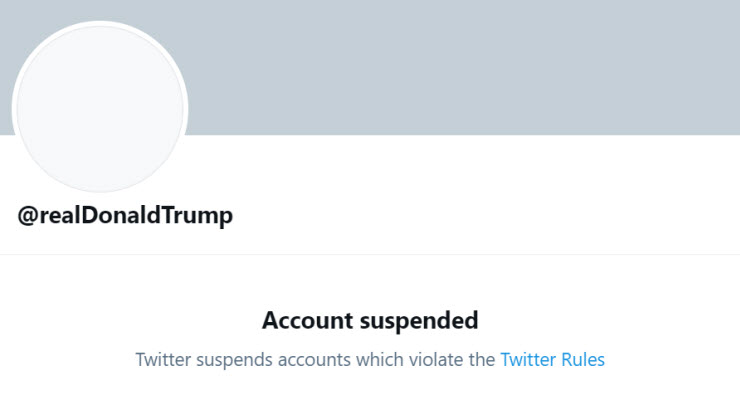
Any remaining doubt about the social power of the companies that control social media in the West should have been put to bed by the digital defenestration of Donald Trump.
Given that Facebook and Twitter have immense, unprecedented power to manipulate and control what we read and hear and who gets to write or say it, and they have finally chosen to exercise that power in a brutally unsubtle way, is that OK? What can, or should, the law do about it?
Free speech is an abstract notion, in that it has never existed anywhere. All societies constrain its exercise for the same reason that they constrain free choice. That leaves no basis for arguing it is wrong in principle for social media companies to exercise some control over the content on their platforms.
Nor does it make sense to say social media should be free of government control over its content. To some extent governments always regulate what media can publish or broadcast — even in the most liberal societies.
Where we find ourselves was inevitable. For the longest time, the social media giants avoided this moment because it rubs against the principles on which they were founded.
It was inevitable, however, because with power comes the observability of social licence. All businesses operate with a social licence — that is the implicit mandate to exist on the assumed basis that that existence serves the social good.
The more powerful a business becomes, the more consequential is its licence, and the more likely that that licence may be revoked or subjected to limitations.
The story of capitalism is largely that sequence of events.
So Facebook and Twitter were always going to face a reckoning with their own power, and Trump forced it upon them by the sheer scale of his recklessness. They made the right and only choice to take him down as the alternative had become incompatible with their social licence to continue to exist.
However, now they have a problem — also inevitable. Critical to their operating artifice — that they are mere passive providers of a public square on which others make and share the content — is the claim that they have no legal responsibility for what happens on their platforms. They are not, in short, publishers.
That is now a very hard argument to make, because they have just exercised the fundamental power of the publisher: to choose what gets published on their watch. It does not make sense for them to now continue to assert that they can’t be held accountable for content.
The law is a long way behind on this. The courts have been struggling along, trying to retrofit old case law from pre-internet times to the digital world, with predictably arbitrary results. There is no analogy between a noticeboard in a golf club and Facebook, yet we’re still having that argument.
The time is fast approaching for a new perspective on the legal responsibility of social media platforms for their content, because it is in a genuine sense theirs. They are increasingly controlling it — as they must for social reasons — and they can’t continue to escape the legal consequences.
To waste time arguing about whether they should or should not have deplatformed Trump is to miss the point because it was always going to happen (if not to him, then to the next, even more dangerous, demagogue). We should be talking about what it means.








Crikey is committed to hosting lively discussions. Help us keep the conversation useful, interesting and welcoming. We aim to publish comments quickly in the interest of promoting robust conversation, but we’re a small team and we deploy filters to protect against legal risk. Occasionally your comment may be held up while we review, but we’re working as fast as we can to keep the conversation rolling.
The Crikey comment section is members-only content. Please subscribe to leave a comment.
The Crikey comment section is members-only content. Please login to leave a comment.